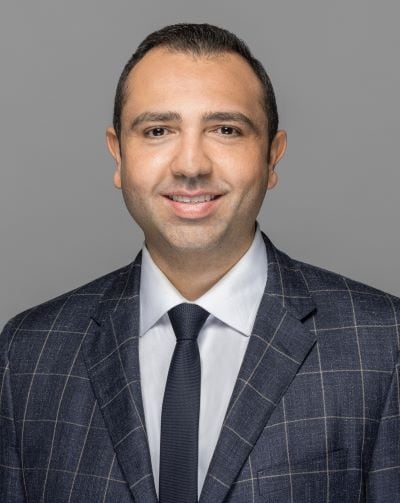How to Recognize Common Forms of Skin Cancer
Although skin cancer can resemble other skin issues, these are signs you should look out for.
Skin cancer is the most common form of cancer, but it can be hard to spot or even mistaken for other skin issues. “This is why it’s important to look over your skin regularly and look for anything that looks suspicious or is changing in shape, size, or color.” says Jamal Saleh MD, PIH Health dermatologist. “Seeing a dermatologist is the best way to find skin cancers early since a trained medical professional will be able to spot bumps, moles, spots, and lesions that may be cancerous.”
Types of Skin Cancer
The most common type of skin cancer is basal cell carcinoma. It occurs in basal cells found in the skin's outer layer. This cancer affects several million people each year in the U.S. but is very treatable and rarely fatal. Another common type of skin cancer is squamous cell carcinoma, which occurs in the squamous cells in the outer layer of the skin. Melanoma, which can grow rapidly and spread to other parts of the body if untreated, is a lot more dangerous but thankfully not as common as other forms of skin cancer.

Signs of Skin Cancer
Here are some possible signs of skin cancer, although many of these signs may also be due to other skin issues. “It’s better to be safe than sorry when it comes to skin cancer because catching it early reduces the chance of it causing serious problems with your health,” says Dr. Saleh. Signs of skin cancer may look different, but if you notice any of these signs, see things that are changing rapidly on your skin, or feel that something on your skin doesn’t quite look right, see a doctor.
- New spots or growths or ones that change in size, shape, or color
- Spots that are pink or skin-colored that are pearly, waxy, or a little shiny
- Spots that are brown, blue, or gray, often with irregular edges
- Spots that bleed easily or don’t heal quickly
- Spots that are itchy or painful
- Red, rough, or scaly spots
- Growths with raised borders, that bleed or are wart-like
- Scaly or crusty lesions or scar-like growths without well-defined borders
- Changes in appearance of a mole
The most common locations for basal cell carcinomas are in places that typically see the most sun, such as the face, neck, ears, head, arms, hands, or legs. However, melanomas can occur anywhere on the body, even if they are not usually exposed to the sun. Dr. Saleh says, “Skin cancers may resemble moles, pink bumps, warts, freckles, scars, growths, or minor skin injuries, which is why they are often hard to spot.”
Many skin cancers are detected during routine skin examinations by dermatologists. Often, symptoms may appear unremarkable to the average person, sometimes in less visible areas. Regular visits to a dermatologist, particularly for individuals who spend time in the sun or have a history of sun exposure, are crucial for early detection and prevention of skin cancer. To find a doctor, go to PIHHealth.org/Doctors

Jamal Zouheir Saleh MD
Jamal Saleh MD is a dermatologist who sees patients of all ages and any skin concerns. He is particularly interested in skin cancer and autoimmune skin disease. Dr. Saleh decided to specialize in dermatology because he found it to be a visual, detail-oriented area of medicine that requires strong diagnostic abilities and a broad base of knowledge that combines several areas of medicine. “Being a doctor is both intellectually stimulating and personally gratifying,” he said. “I strive to make a meaningful difference in the lives of my patients. I also enjoy seeing a patient’s quality of life improve once their skin condition improves.” In his free time, Dr. Saleh enjoys crafting espresso-based drinks and sipping all forms of coffee. He likes trying new restaurants and cuisines and loves spending time with his family.
View Dr. Saleh's Profile